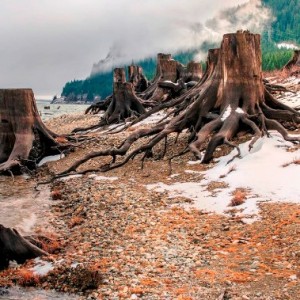The Stream, February 10: Flood Defenses in England Go Unfunded
The Global Rundown |
England faces a major funding gap for its flood defenses after private investors fail to make up for government cuts. Scientists are working to improve extreme weather forecasting, while researchers in Asia say community input is essential for making resilient infrastructure in disaster areas. Simple water harvesting systems in Kenya are helping communities take advantage of extreme rainfall, scientists worry an invasive mussel could reach the Amazon River, and water quality in lakes in the Ecuador Andes is shifting due to climate change. California may close more than 100 oilfield wells that are injecting into aquifers.
“It is unclear how the £600m target can be met, and we want the Department for Environment, Food and Rural Affairs (Defra) to demonstrate how it intends to obtain that money and to explain the impact on its investment programme if the money does not come forward.”–Anne McIntosh, chair of the United Kingdom’s Environment, Food, and Rural Affairs committee, on a shortage of private sector funding that the government planned to use to make up for cuts in flood defense spending. (Guardian)
By The Numbers |
1,900 kilometers Distance between Brazil’s Pantanal wetland system and the Amazon River system, where researchers fear an invasive and destructive mussel could spread. Associated Press
20,000 liters per day Average amount of water harvested by a simple weir and storage tank system in a Kenya community, where it also collects larger volumes during extreme rainfall events. Reuters
Science, Studies, And Reports |
Scientists are using advancing computer models and new observation methods to improve the accuracy of forecasts for extreme weather events, which are expected to increase due to global climate change. Improving forecasts could help save lives and property from extreme events like floods and droughts. Yale Environment 360
Remote, tropical lakes high in the Andes are showing signs of shifting water quality due to climate change, researchers from Ontario-based Queen’s University found. The scientists say the changes could have effects on the ecosystem’s food chain and the drinking water for communities in Ecuador. Queen’s Gazette
On The Radar |
California said it will work to close as many as 140 oilfield wells by October to protect underground aquifers that could be used for drinking and agriculture water supplies. The state has permitted more than 2,500 oil and gas injection wells to dispose of waste in such aquifers, according to a current review. Associated Press
Input from communities in disaster-prone areas is a critical component of efforts to make infrastructure more resilient, according to researchers from six Asian countries. Community input can help ensure that infrastructure can be managed sustainably for the long-term. Reuters
A news correspondent for Circle of Blue based out of Hawaii. She writes The Stream, Circle of Blue’s daily digest of international water news trends. Her interests include food security, ecology and the Great Lakes.
Contact Codi Kozacek





Leave a Reply
Want to join the discussion?Feel free to contribute!